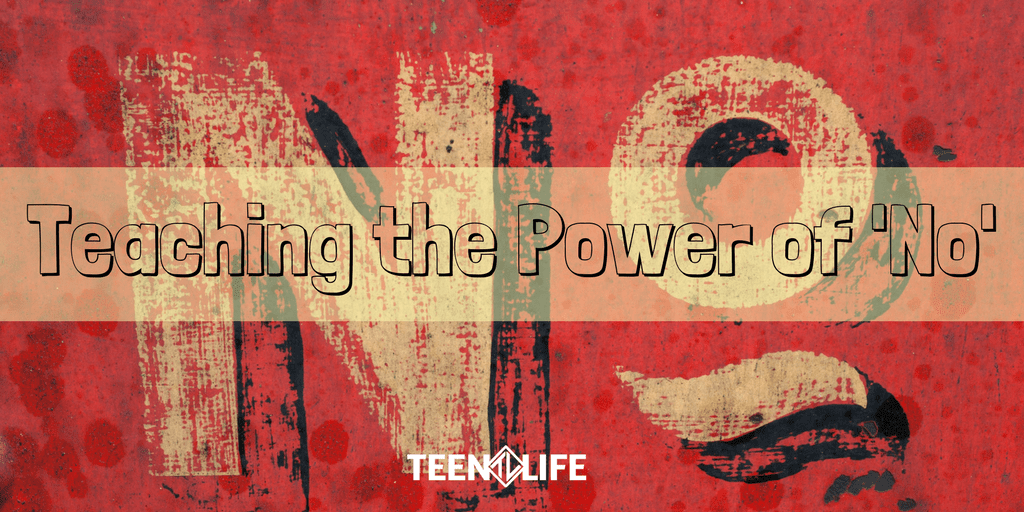Two letters in the English language seem to be some of the most difficult for people to say to each other: No.
I have struggled with saying ‘no’, and my friends, family, and the teens I have worked with also struggle with saying ‘no’. Despite the struggle we have all experienced with saying ‘no’, we place high expectations on teenagers to be able to say it when they are being put under pressure in serious situations by their peers. Saying ‘no’ is such a powerful weapon and is a concept that we should be teaching teens through example.
Why is saying ‘no’ so difficult, even for adults? Here are some reasons that lead to the internal struggle of verbalizing ‘no’.
We are (kind of) brainwashed.
Since being a child, I have been taught that saying ‘no’ is rude. I should not refuse any food at a table even if I know I do not like it. I should not reject a friendship even if I do not enjoy that person. I should never reject a gift, no matter how horrible it is. Then, as a teenager, I was told to say ‘no’ to boys, sex, drugs, alcohol, and any other ‘rebellious’ behavior. It felt like a sudden shift from never saying ‘no’ to being forced to say it in situations that are uncomfortable.
As adults, we need to focus on how hard it really is for teenagers to go from the expectation of never refusing anything to refusing those things that they may feel pressured into doing by their peers. Trusted adults should help teens understand when saying ‘no’ is acceptable and how to say it tactfully in those tough situations.
Saying ‘no’ once does not mean ‘no’ all the time.
As a teenager and young adult, I always worried that if I said ‘no’ to going out or spending time with friends, those people would never invite me out again, or I would be forgotten. This constant worry of being left out is a concept that can carry over into adulthood if it is not addressed early on. Teenagers have a need to be liked and accepted by their peers, which can lead to difficulty navigating negative situations.
Adults should be models of what healthy friendships look like, which often includes saying ‘no’, even when everyone else may be saying ‘yes’. Helping teens understand how to build trust that someone will be there even when they say ‘no’ occasionally is an important aspect of learning how to develop their boundaries. Saying ‘no’ to hanging out is not the end-all-be-all and can actually be really beneficial. Teens need to be reminded that saying ‘no’ does not need to include long excuses or reasons. If a person is truly a friend, they will still be there even when you sometimes say ‘no’.
How can we help teens learn the power of ‘no’?
Encourage teens to be assertive when the situation calls for it. This is a difficult concept (even for some adults), so it is crucial that we educate teens on how to be assertive without becoming aggressive. This can start with talking to teens about these topics:
Help teens understand their boundaries. What are they comfortable doing and what makes them uncomfortable?
Ask teens about their priorities or goals. Understanding how their decisions now can affect their futures can be a good incentive to learn to say ‘no’ when it matters.
Teens often have a role model that they admire. Ask them who their role model is and why.
Are they a role model for someone? I know several teens who have talked about how they need to be better because their younger sibling needs them. This can be a great incentive for a teen to learn how to say ‘no’ assertively in any situation.
*Shelbie Fowler is a former intern and volunteer at Teen Life. She has her Masters in Family Studies and is passionate about being an advocate for family life education in order to grow families stronger.
